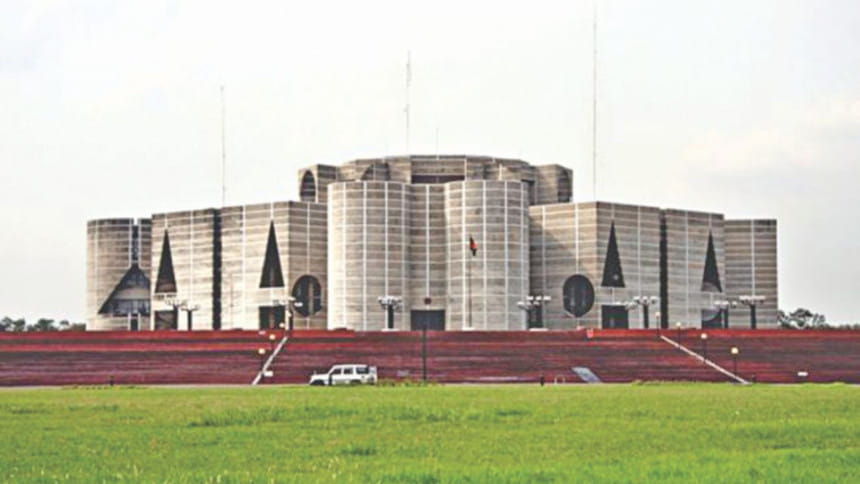Is our Parliament functioning the way it should?

A few days ago, during a discussion with a foreign delegation inside the Parliament building, an important personality stated that the Parliament is the symbol of our democracy. Similar views are frequently being propagated by the present party in power and its alliance.
In a democracy, responsibilities and authorities are distributed through different institutions. In a parliamentary system, it is the Parliament on which effective coordination between different functionaries rests. A culture of overall accountability is thus ensured by establishing a balance of power and authority amongst individual institutions. If any person/institution has control over other organs then it becomes a dictatorial rule and undermines accountability, resulting in a loss of public interest.
The Parliament is the pivot that makes sure that the balance of power is maintained, that it is not tipped in favour of any particular person/institution. The Parliament, if necessary through discussion, may amend the constitution, enact new laws, and use any other means to achieve that.
In the one house parliamentary form of government in Bangladesh, the leader of the ruling party is appointed as head of the government or the Prime Minister (PM) who chooses the members of the cabinet. It is a normal practice that the chief of the winning party (is elected and) becomes the Prime Minister as well as the head of ruling party parliament members. As per the Constitution (Article 70), MPs elected from a party cannot disobey the decision of the party in Parliament. The PM, being head of the party and parliamentary party is in a position to impose his/her decisions on the party MPs. Any decision taken by the head of the government is sure to get the nod of the Parliament, irrespective of merit. Bangladesh's Parliament, for this reason, is considered by many as a rubber stamp parliament to give the seal of legitimacy to every work of the government.
There are, thus, shortcomings in the functioning of our Parliament. But instead of making the appropriate amendments, the situation has been made worse after the election of January 5, 2014.
The election was boycotted by most political parties. The majority number of candidates were declared elected unopposed. Elections in the rest of the seats were alleged to have a minimal turnout amidst allegations of rigging and violence. The public now probably feels that with the right to vote, they have also lost the power to make the government accountable to them.
The main opposition party has been made a partner of the government as cabinet positions have been allocated to its members. The opposition is thus discouraged from taking any stand against government proposals in the Parliament. If they vote in the negative on any proposal brought forth by the ruling party, ministers and MPs from the opposition can lose their membership of the Parliament as per provisions of Articles 70 & 55(3) of the Constitution. Moreover, the chief of the opposition party has been made an adviser to the PM. How can the functioning of such a party, whose leader is under the administrative control of the ruling party, be acceptable as the opposition to the public?
The president is elected by majority votes (no provision of secret balloting) in the Parliament and his removal needs a two-third majority. The ruling party has more than that and this provides absolute authority to the PM. Appointment of high court judges and all other constitutional bodies like the Election Commission, Anti-Corruption Commission, and Public Service Commission etc. are under the jurisdiction or influence of the PM. Removal of officials from these positions are made possible now by the PM due to an amendment of the Constitution.
Thus we have one person as the head of the ruling party, who is also the chief of the executive office and has effective influence over other institutions responsible for additional state functions. The balance of power is totally skewed, creating a setback for accountability which is the essence for the proper functioning of democracy.
The parliament is expected to create a barrier against dictatorial rule and facilitate democratisation. The present parliament has been doing the opposite. As such, it fails to symbolise democracy.
The writer is the Presidium Member of the Jatiya Party and a former minister.

 For all latest news, follow The Daily Star's Google News channel.
For all latest news, follow The Daily Star's Google News channel. 



Comments